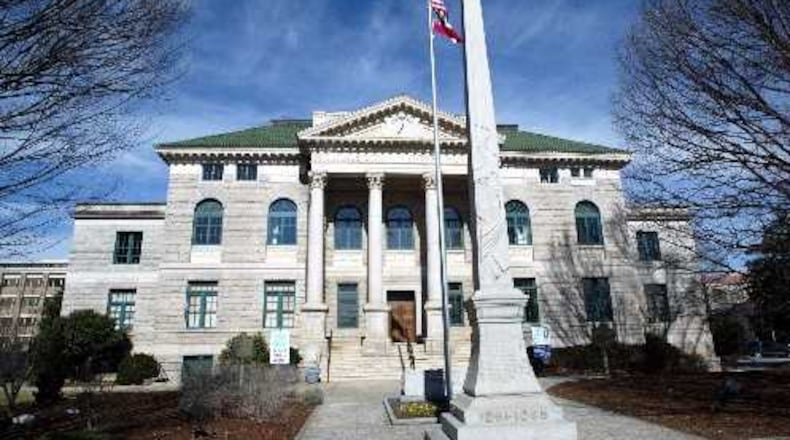A march in Atlanta, a conversation in Decatur: The aftershocks from Charlottesville are putting the issue of Confederate monuments on the streets here Saturday night.
Thousands of participants are expected at Centennial Olympic Park at 6 p.m. to hear a range of speakers before marching to rally at the tomb of Martin Luther King, Jr. on Auburn Avenue, said Janel Green, co-founder of the Georgia Alliance for Social Justice.
The event was hastily organized after last week’s dramatic events in Virginia, when marches by white supremacists led to counter-demonstrations, violent clashes and ultimately the death of a woman who was run down by a car.
Saturday night’s Atlanta march and rally are meant as non-violent resistance to hate, she said.
And while the organizers share a criticism of Confederate monuments, their views differ as to dealing with the icons.
“There is a diversity of opinion,” Green said. “Some people just want the monuments gone. Others are open to creative ways to remove symbols of hate while being honest about our history.”
The route of the march has not been announced, for security reasons, she said, but has been chosen “intentionally to go by some monuments that do represent diversity and civil rights.”
The Georgia Alliance is a coalition of many groups created in the aftermath of the women's march in January.
Saturday’s events in Boston, where a crowd of counter-demonstrators vastly outnumbered white nationalists, spurred organizers here to invoke local pride.
“The streets of Boston are full! Let's make sure the home of the Civil Rights Movement has an even bigger presence!” the organizers wrote on Facebook.
In Decatur on Saturday evening, an obelisk in the square near the old DeKalb Courthouse is both the location and the subject of discussion, said Hannah Hill.
Roughly 2,000 names are on a petition calling for the removal of the 30-foot tall monument, but the idea Saturday is to invite a wide range of opinions about a response to the obelisk, said Hill, who is a local minister. “It is a discussion, not a rally. We want to hear all points of view.”
In fact, there is at least one online effort to protect the monument, a website that says it has 250 supporters.
Hill said she welcomes those who want the monument to stand unchanged. “That it not what I want, but that doesn’t mean I shouldn’t listen to those people.”
Although the monument makes reference to the Civil War, it was erected in the early years of the 20th century when former Confederate states were passing Jim Crow laws that effectively made blacks second-class citizens, Hill said.
The monument and its position was clearly meant to underscore that status, she said. “It is a stone, phallic object in front of the place where African-American people were going to be tried for violating those laws. So it was a statement.”
About the Author
The Latest
Featured



